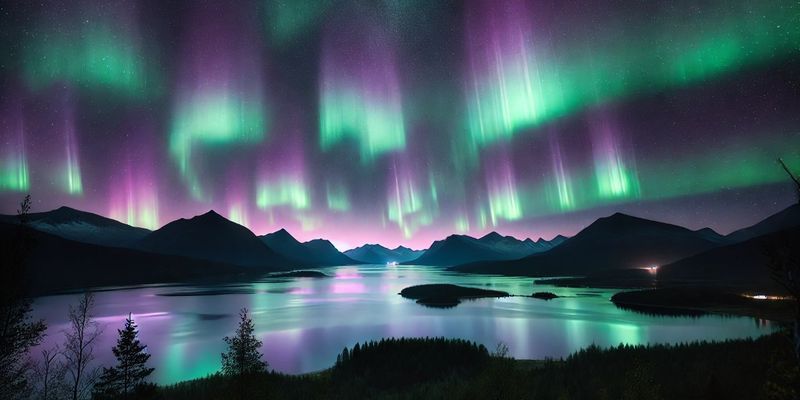
2024 has been nothing short of magical for skywatchers as the northern lights, or Aurora Borealis, have been dancing across the skies in unexpected places. From as far south as Florida to parts of southern Europe, these ethereal displays have been awe-inspiring and much more frequent than usual. So, what’s going on? The Solar Max Factor The key to understanding this global aurora spectacle lies in the Sun.
We're currently experiencing what's called "solar maximum," the peak of the Sun's 11-year activity cycle. During this period, solar activity ramps up significantly, leading to an increase in solar flares and coronal mass ejections (CMEs)—huge bursts of solar wind and magnetic fields that interact with Earth's magnetosphere. These interactions cause geomagnetic storms, which are responsible for those mesmerizing northern lights.
In 2024, we’ve witnessed some of the most intense geomagnetic storms in over two decades. These storms have been so powerful that auroras are showing up in regions far outside their usual range, delighting both seasoned skywatchers and those seeing them for the first time. For instance, a massive solar flare in May 2024 triggered auroras as far south as Texas and New Zealand, where it’s normally impossible to see such displays.
A Global Light Show On several occasions this year, social media has exploded with photos of the auroras from places like New York, the UK, and even parts of southern Europe. Normally, such displays are limited to high-latitude regions like Norway or Canada. But this year, places like Nottingham, UK, and even southern US states like Florida, have been treated to these stunning shows, thanks to solar storms that have pushed the auroral oval much further south than usual.
And it's not just amateur astronomers who are impressed. Scientists tracking the auroras have been astounded by how vivid and widespread the phenomenon has become. In one instance, airline passengers flying from Atlanta to Denver were able to enjoy three uninterrupted hours of auroral magic right from their windows.
Talk about the ultimate in-flight entertainment! What Colors the Sky? The intense colors we’re seeing—greens, purples, reds—are a result of solar particles colliding with gases in the Earth’s atmosphere. Oxygen tends to emit green and red hues, while nitrogen produces blue and purple. During particularly strong geomagnetic storms, like those people have seen, the colors become more intense and visible to the naked eye, even in areas with significant light pollution.
How Long Will This Last? While solar maximum is expected to last a couple more years, this heightened visibility of the northern lights could continue well into 2025. So, if you missed out on this year's shows, don’t worry! There are still plenty of chances to catch a glimpse of these "out-of-this-world" light displays as solar activity remains high. In the meantime, you might want to download an aurora tracking app, pack a warm coat, and plan a night of aurora hunting.
Who knows? The next time the lights dance, it could be right over your backyard! If you're planning an aurora chase, look for clear, dark skies away from city lights. Also, keep an eye on geomagnetic storm forecasts—many of these spectacular displays are predicted days in advance, giving you time to find the perfect spot to watch the show. With solar storms turning the skies into nature’s own disco, 2024 has truly been the year of the northern lights.
Get your cameras ready, because this once-in-a-decade phenomenon is lighting up the world in unexpected ways!.










